As the nation looks back 80 years, the lives of men now aged either side of 100 remind us of what Britain represents - Will Hollis our reporter speaks of his experience meeting some of Britain's heroes
Don't Miss
Most Read
Trending on GB News
Like most youngsters, the first stories I heard of the Second World War came from my grandparents. Although only children in the days when war raged across the continents, the effect lasted throughout their lifetime, pressing upon mine.
The second imprint came through war films.
At the age of 12, when Saving Private Ryan was shown on TV I was still too young to stay up and watch it. My dad, however, a fan of the film himself, recorded it to VHS for me to watch the next day.
I remember kids at school describing the scenes portraying the invasion of Normandy; the action and bloody details. Today it’s still one of my favourite films and I struggle not to watch it if it appears on late-night TV.
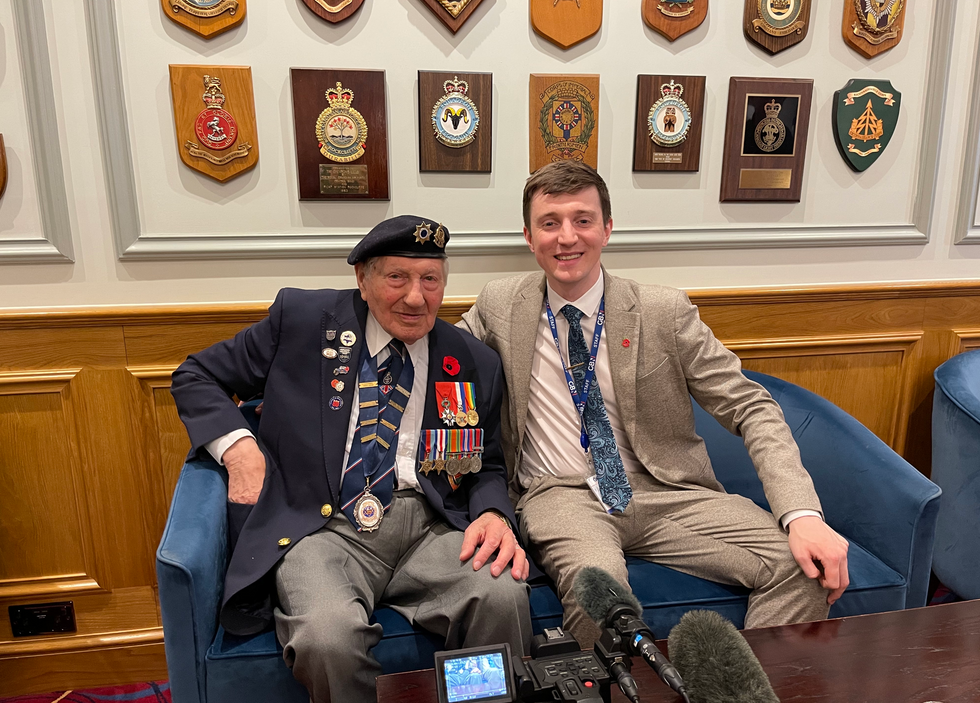
GB News reporter Will Hollis sits with war veteran Mervyn Kersh
GB News
During the premiere in 1998, the opening scenes of American infantry landing on Omaha beach were so realistic that D-Day veterans in the audience had to step out.
Now though, the understanding many young people have around Operation Overlord ends when the film credits roll. In recent polling, only a third of 18–24-year-olds understand what D-Day is.
As a journalist, I’ve been lucky enough to hear the stories of the largest invasion in history through the words of people who were there on June 6, 1994 and the days that followed.
A little over a month ago, reporters were invited to meet some of Britain’s last remaining Normandy veterans at a press event in London, held at the aptly selected Union Jack Club.
The Spirit of Normandy Trust and British Normandy Memorial brought the two sides together ahead of the trip to Normandy for the 80th anniversary.
The men, all aged over 100 or just shy of it are three times my age, wearing suits decorated with their achievement; heads topped with traditional military berets.
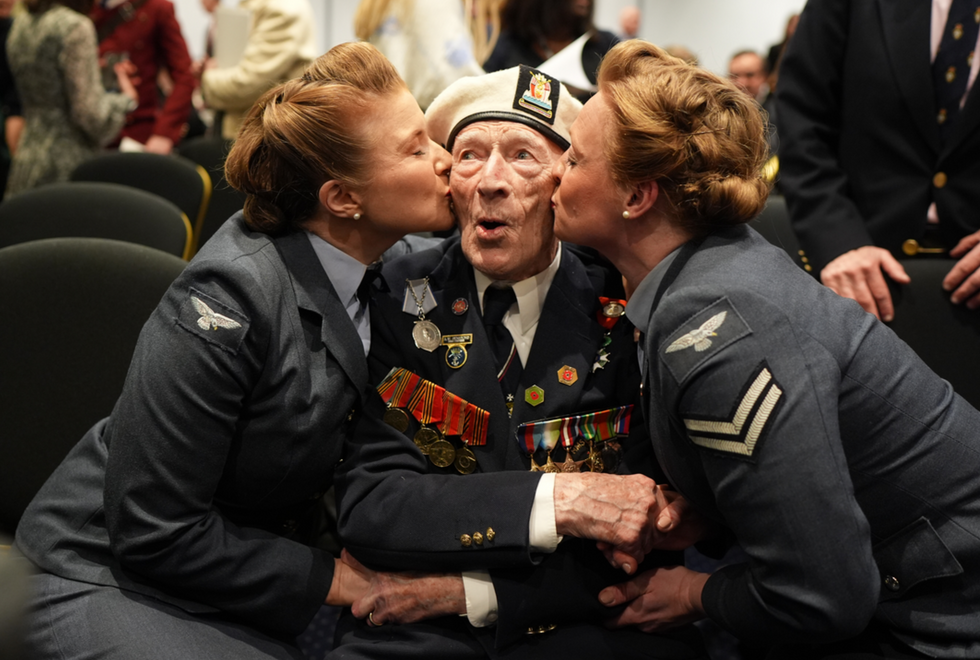
Reporters were invited to meet Normandy veterans at a press event in London
GB News
When they earned their medals, including Frances highest award the Legion of Honour, most were barely past 18 or 19-years-old.
The press outnumbered them 10-to-1, yet they had time for each of us, telling their stories as if sharing amongst fellow servicemen below deck in a ship.
They detailed midnight raids, deafening artillery, and the immeasurable numbers of vehicles – an operation at a scale not witnessed before or since.
Only some had stepped into Normandy. Many served on ships or back in Britain in roles no less important to victory. A conference room filled with 100 journalists roars like the sound of an Avro Lancaster.
Each of us scrambling for quotes, straining to hear the voices of Britain’s greatest generation. Seated in a mobility scooter, Gilbert Clarke has no end of journalists lining up to speak with him.
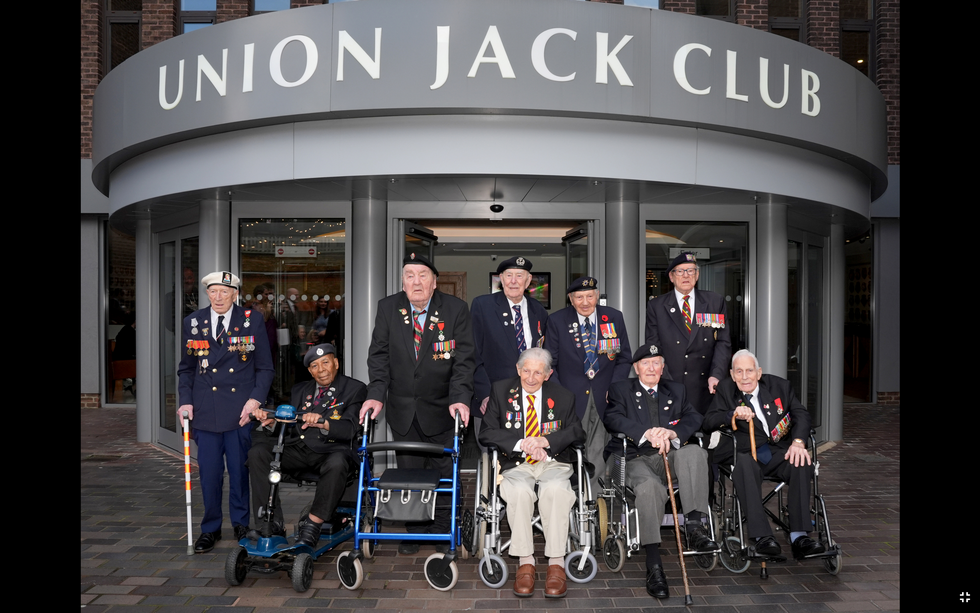
Normandy veterans pose for pictures in front of the Union Jack Club
GB News
He left his home in Jamaica aged just 16 to join the Royal Air Force. Now, aged 98, he spends his days watching wildlife – a pastime more peaceful than previous times from his past.
“I feel privileged to help in a small way,” he tells me.
Thousands of young black men from commonwealth countries volunteered to fight for Britain’s freedom.
Gilbert is one of just a handful still living. Visiting schools, he teaches children “to try and do better than the adults” because the adults “aren't doing a good job.”
With a break for rest and food (mainly a spread for the veterans but a journalist never misses a chance to eat) a calmer atmosphere settles as the D-Day Darlings prepare to perform.
The three 1940s-era singers garbed in RAF uniforms have become a staple at heritage shows and Remembrance events. The veterans are their favourite fans – earning a kiss on the cheek whenever a chance is given.
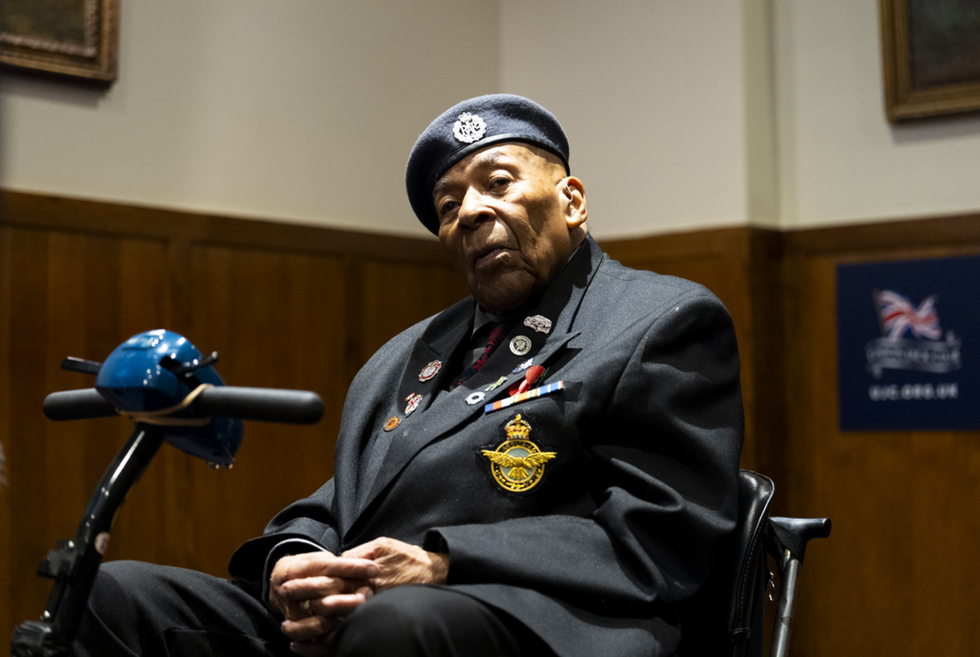
Gilbert Clarke left his home in Jamaica to join the Royal Air Force aged just 16
GB News
In his distinctive white beret, Royal Navy veteran Alec Penstone is pulled up to dance to the wartime classic ‘It’s a long way to Tipperary’.
He isn’t the only one. Although they might not be sprinters, they’re spinning the singers and tipping them as if in the dancehalls of younger days.
The spirit stirs in men hearing the music of their youth; the songs that gave them strength at a time when it would have been easy to be weak.
Throughout the show, which includes Vera Lynn’s classic ‘We’ll Meet Again’, the veterans behave more like boys, as if they haven’t aged a day.
They carry a cheekiness that nowadays seems reserved for only the generation of men closing its final chapter.
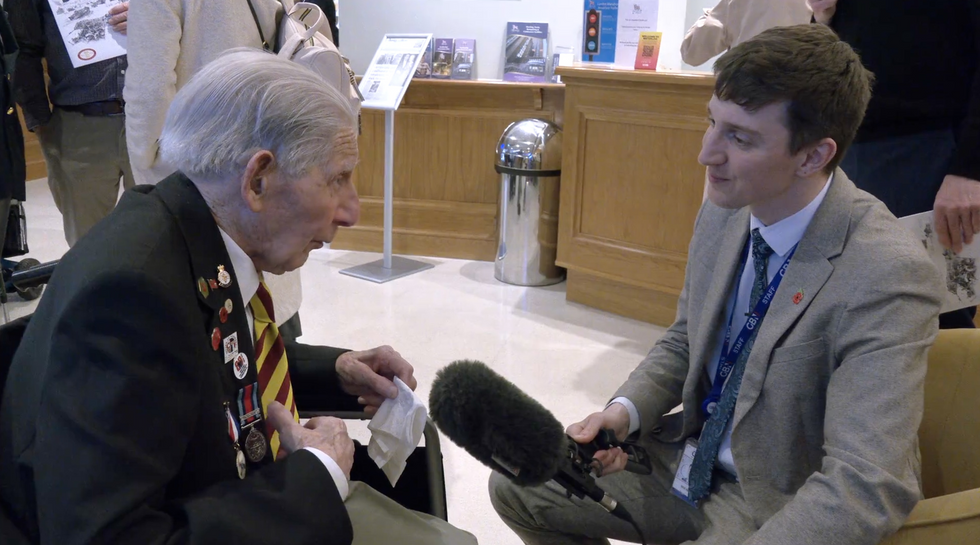
GB News reporter Will Hollis speaks to veteran Donald Howkins
GB News
Speaking to me afterwards, Alec, a submarine detector on D-Day, says “I’m so pleased that I'm still able to say thank you to all these wonderful people who’ve come to talk to me today.
“I took it as part of my life,” he says. “I didn’t realise other people would be interested in what happened to me 80 years ago.” The manners of these men put successive generations to shame.
Speaking about events that occurred decades ago repeatedly for hours is undoubtedly exhausting for the veterans; and even for Britain’s press.
In the reception of the hotel, as people file past to leave, Donald Howkins, who served as a Gunner in the 90th Middlesex Regiment, has time for one more interview with me.
Remembering the landing, the 103-year-old says, “It was a big adventure.”
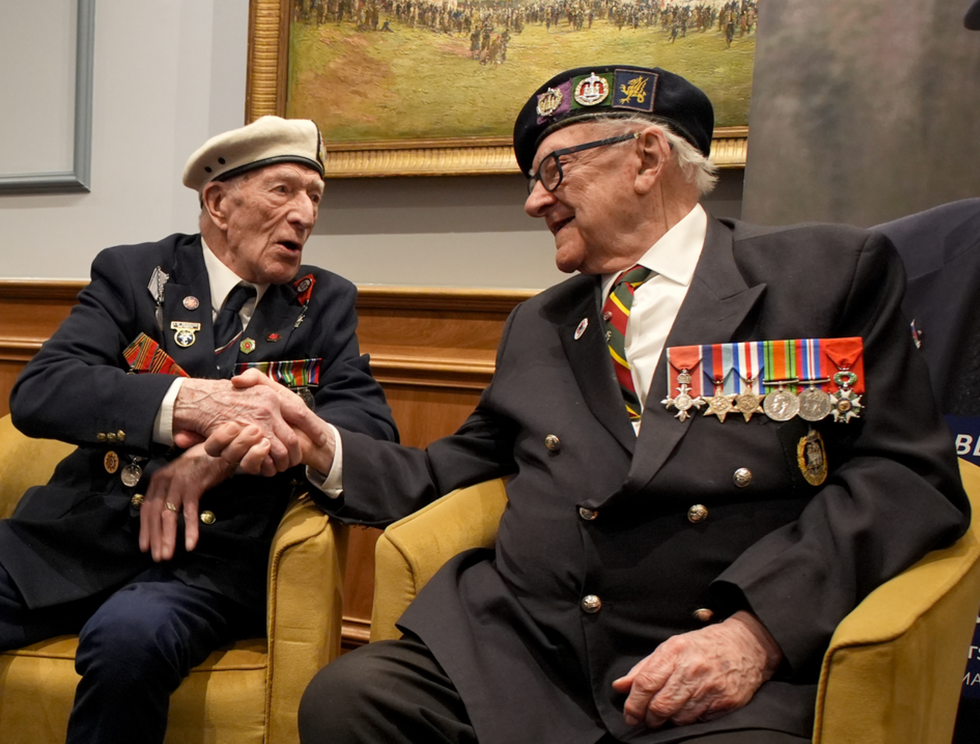
Alec Penstone and Ken Hay whoa re decorated with their achievements shake hands
GB News
He landed on Gold Beach on June 6th but doesn’t remember a single thing until he was some way inland.
“You never thought about yourself,” he tells me.
In the short conversation we share, his sense of duty is standout, plus his thoughts on how men like me should act.
“I think and expect, at your age, to do the same as what I did,” he says. “You're fighting for your country, for your people. That’s it.” Even for the veterans that survived, their sacrifice was great.
They gave their time and opportunities to destroy a dictator who was threatening to rob the world of freedom for the next thousand years.
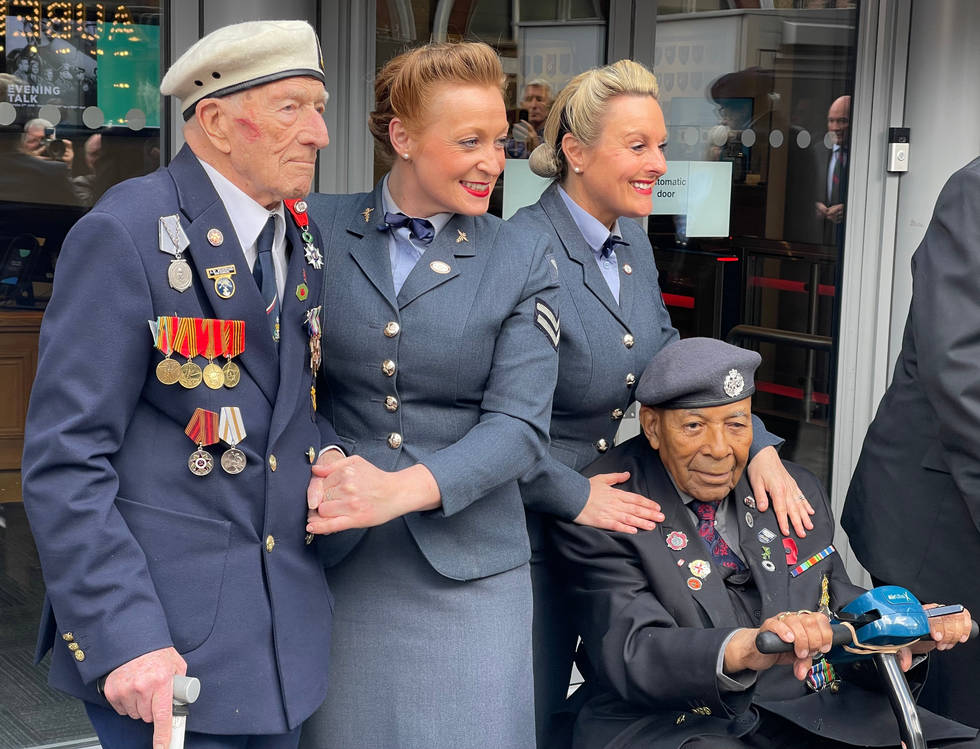
Alec Penstone and Gilbert Clarke are pictured with the D-Day Darlings who performed for the veterans
GB News
LATEST DEVELOPMENTS:
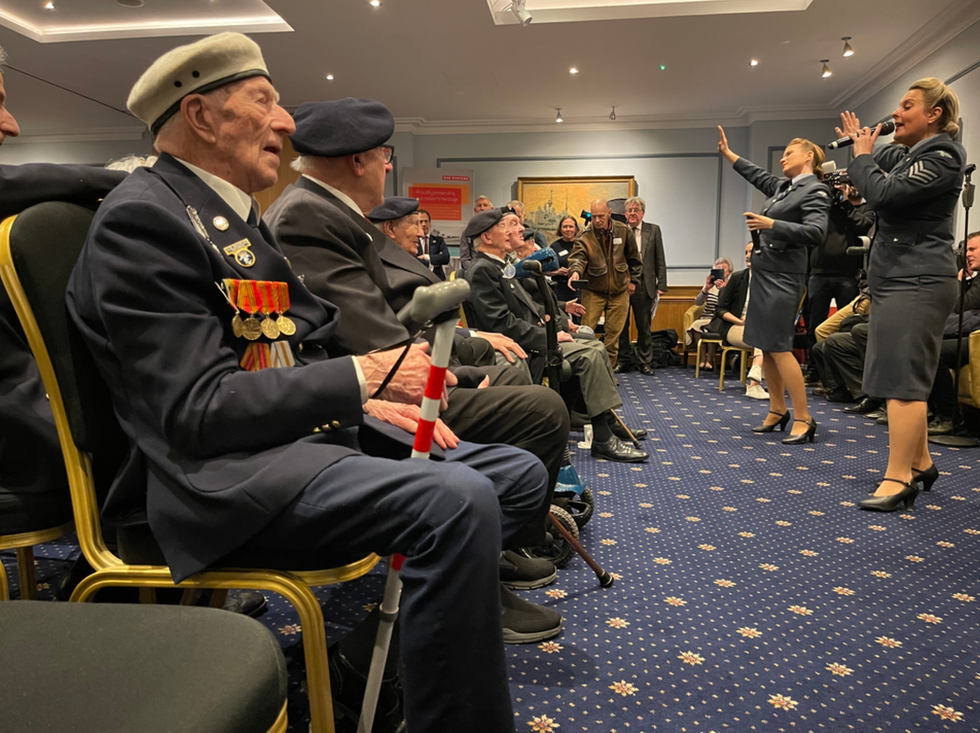
Veterans sing along with the D-Day Darlings
GB News
Pride in Britain is sometimes questioned and criticised, yet veterans, the country’s greatest generation, are filled with it. And, a sense of responsibility, honour, respect, tolerance – values that Britain is bound to.
The last of our D-Day veterans teach the lesson that we share a contract between citizen and state. Protect your country and your country will protect you.
It struck me that, having gone through what they did, they would do it all again in a heartbeat.
As we approach the 80th anniversary of the Normandy landings, Saving Private Ryan is back in cinemas for a special showing of Spielberg's celebrated war film - I’ve already got my ticket.
I suppose in many ways we’re all boys still, but some of us had to grow up differently.









